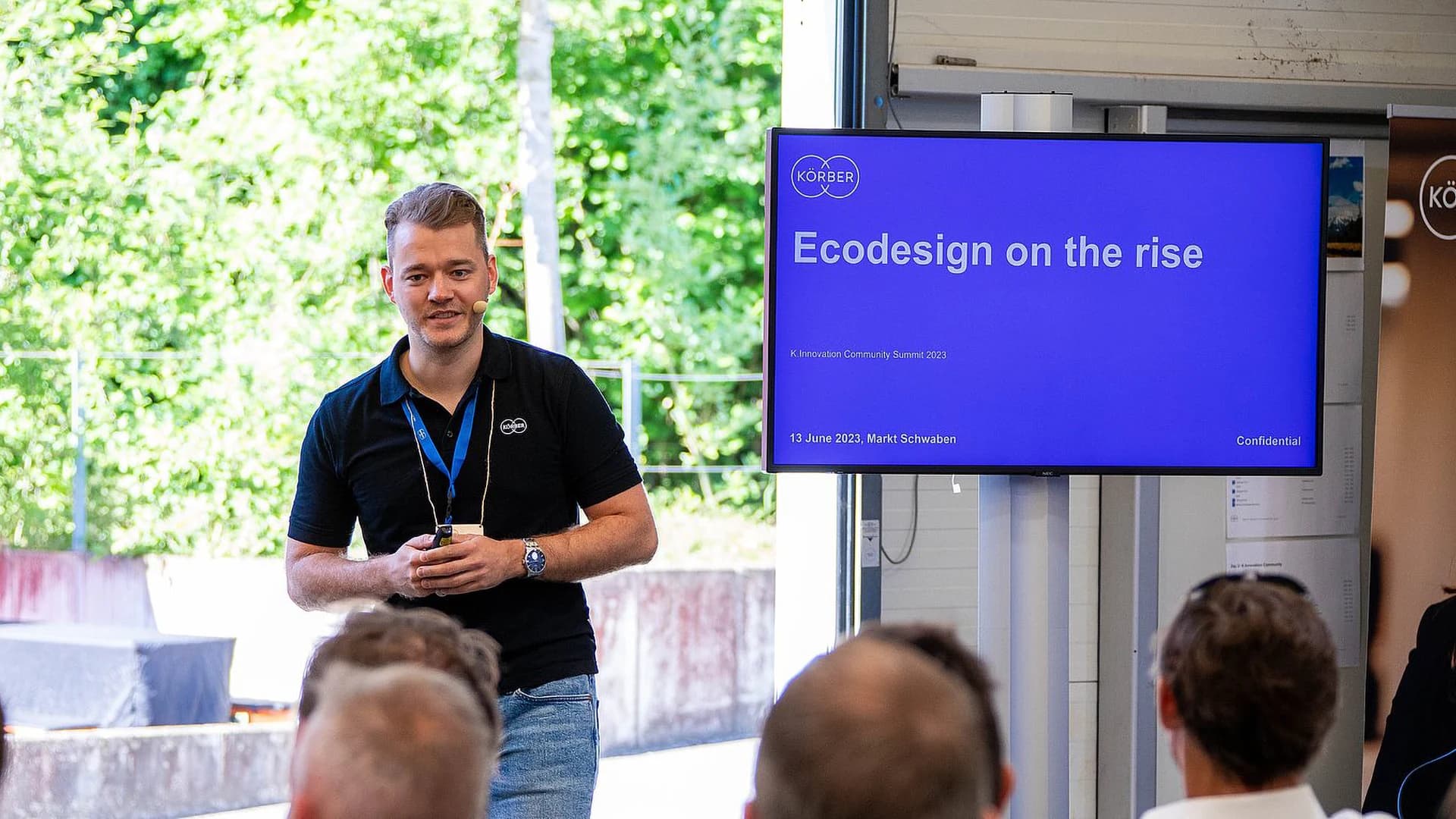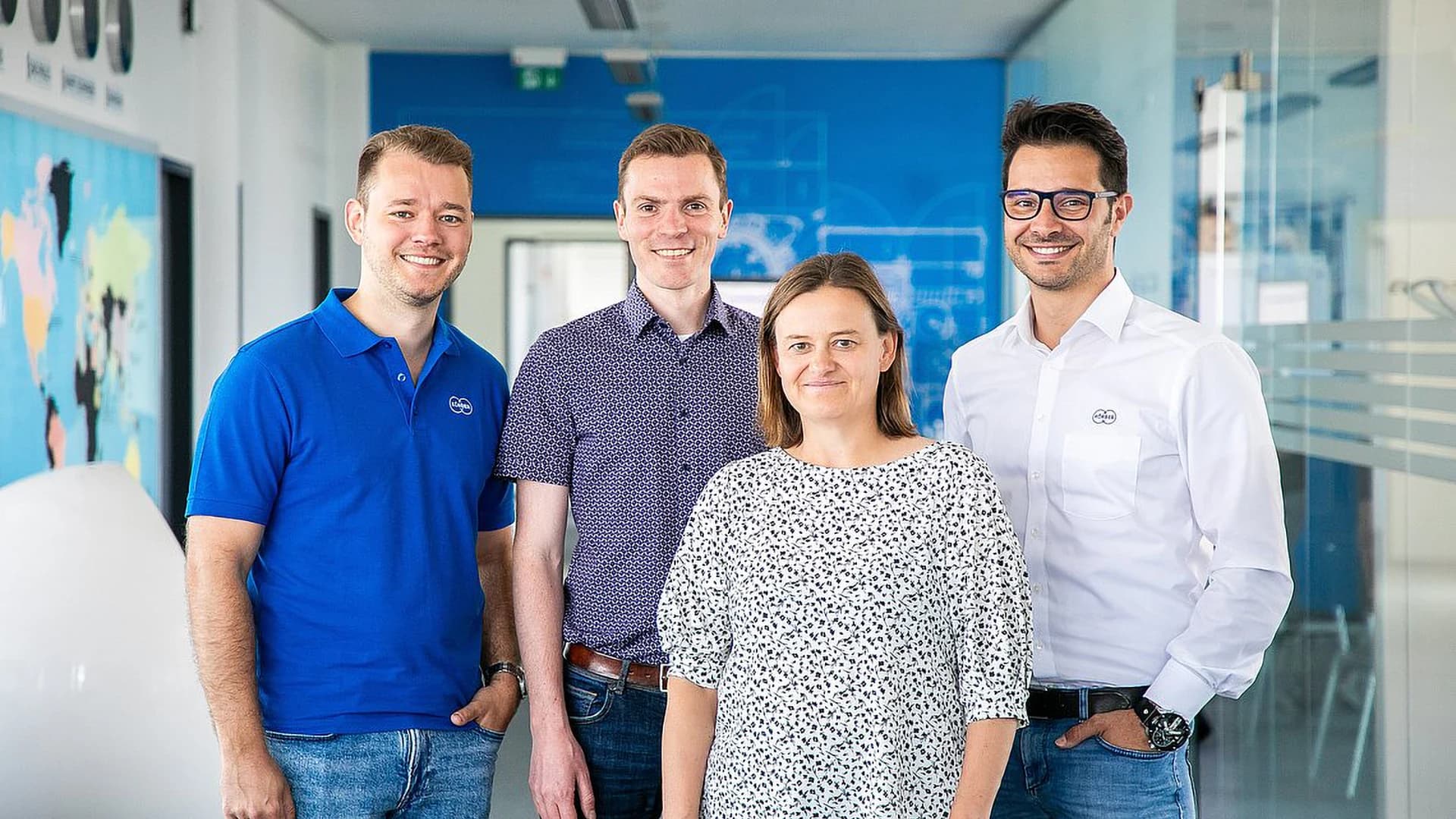- About us
- Sustainability Report 2022
- Sustainable mission
Employees on a sustainable mission
With our sustainable mission, we take responsibility for people, the environment, and society—we drive long-term change and create value for future generations.


Ecodesign can turn sustainability into good business
As part of a general review, experts are currently taking a close look at selected machines: “We analyze our machines in pilot projects to determine where there is potential for optimization. We want to use this as a basis for our roadmap, which will define how ecodesign can be implemented in a standardized manner at all of Körber’s Business Areas in the years ahead,” says Gerl.
Life cycle assessments have shown that 80% of a product’s environmental impact can be avoided as early as the development and design phase.¹ This can be done, for example, by designing products that are durable, repairable, material- and energy-efficient, and low in problematic materials. “We have a direct effect on the environment due to the way we design machines and our products,” says Gerl.

"We have a direct effect on the environment due to the way we design machines and our products."
Bernhard Gerl

"When I see how the world is developing in terms of climate change, I realize that it’s time to act."
Fabian Bäcker
"The implementation of ecodesign is a highly complex topic that we will have to address in-depth and for a long time to come."
Jürgen Dick
Ecodesign in practice

"Tobias Kucharz is not only committed to sustainability as a member of the Ecodesign think tank, he also devotes a lot of time to this topic in his private life."
Tobias Kucharz


